Every now and then my autistic friends and I have to explain why functioning labels are not helpful, why it works against acceptance, why it is something created by non-disabled people who knew very little about how autistic brains work, who saw autistics as lesser people, and who saw the need to grade us in order to apply their wrong assumptions in an attempt to “fix” us.
To them, “high-functioning” autistics were “better”, easy to deal with. The “low-functioning” autistics required a lot more work because their lives was “misery”.
That’s the first problem: lack of understanding of autism, leading to rushed judgments based, largely, on appearances.
Even though those labels were created a while ago, even though there are many examples that debunk this silly approach, many still insist on its use.
That’s why we keep coming back to the subject.
Functioning labels are useless for the autistic person.
We don’t wake up every morning and think: “I am so low-functioning, I feel so sorry for myself, I am too needy and I don’t really have a chance to be valued”. We wake up and face the life we have, being the best we can be.
If we have any hidden abilities, they will remain hidden. Or we might show some special talent but if we still look weird or too different from our peers, we are still pitied, as if we are under constant suffering.
And we don’t wake up every morning and think: “I am so high-functioning, I look almost normal. Today I will try to be normal, like my peers. I want to be just like them, indistinguishable from them”. We wake up and face the life we have, being the best we can be.
If we have hidden disabilities, we might be denied supports necessary for our well-being. If we request them, we might be told to just try harder to be more “normal”.
There are some autistics who were told, as children, that they are much better than every other autistic because they are “so high-functioning”. Some of them grew up to become “Aspie/Autie supremacists”, which is as bad as the term implies.
There is another reason for not using functioning labels:
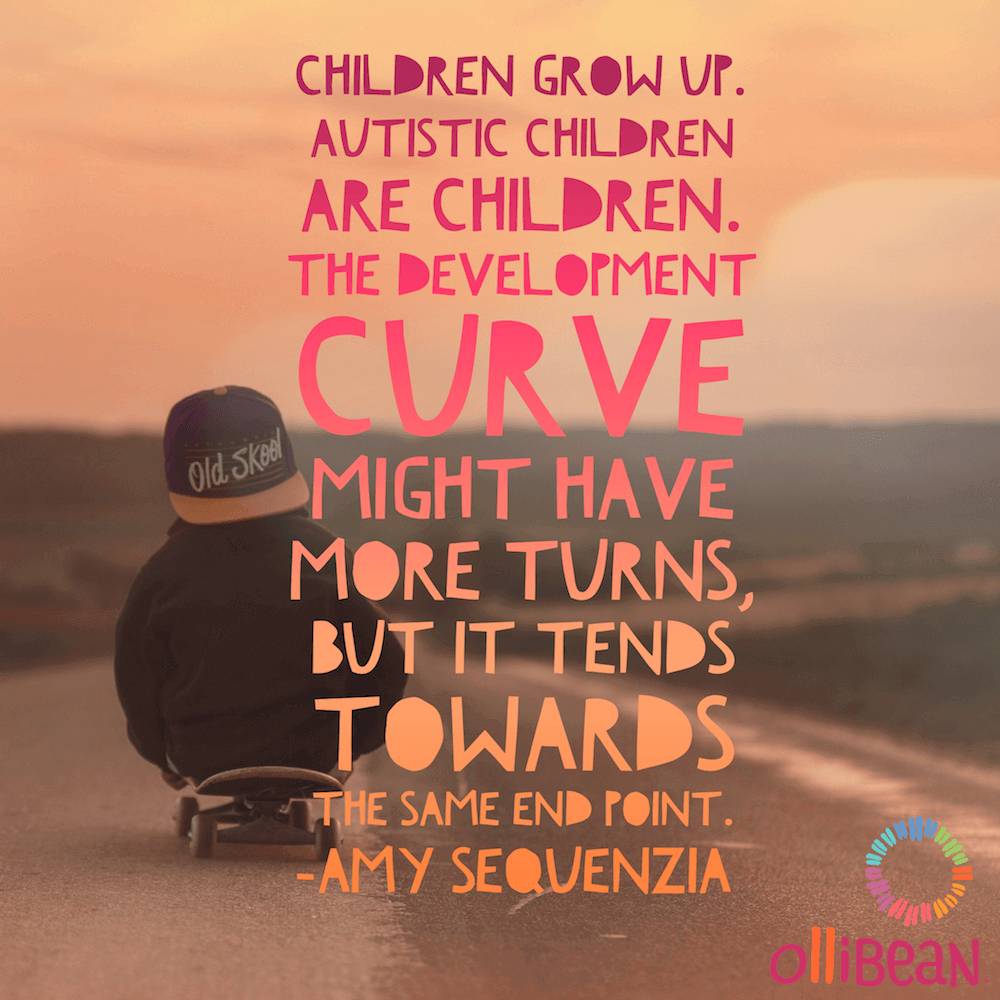 Children grow up. Autistic children are children. The development curve might have more turns, but it tends towards the same end point.
Children grow up. Autistic children are children. The development curve might have more turns, but it tends towards the same end point.
Some parents use functioning labels as a way to show how many challenges one autistic has compared to another. The more challenges there are, the lower the grade is.
These parents are missing the point. When we experience hard moments, it feels bad no matter how you grade us. Everything can simply stop “functioning” even if we are said to be “high-functioning”.
Those are YOUR labels, they are not part of who we are.
I can hear some parents saying: “but some adults ARE low-functioning. They still cannot care for themselves.” (they are talking about autistics like me). My answer: neither can Stephen Hawking.
Yes, I know he is not autistic and I know not all autistics are geniuses. I am not a genius, but I am pretty smart. And if I weren’t “smart” at all, I should still be valued.
I also know that Hawking has a degenerative disease and he was celebrated as a genius before his body slowed down to an almost halt. But we could say that his body, before it lost some of its abilities, were like accommodations. His brain is still his brain – brilliant.
The point is, by saying that some autistic adults are labeled “low-functioning” because we still cannot care for ourselves is denying that we can think. Or should we stop listening to Stephen Hawking’s brilliance and start pitying him?
More Problems with Functioning Labels
There are more problems with functioning labels and they start at home. If parents or family members refer to autistic children as “low-functioning” because doctors and other “experts” labeled the children as “severe”, expectations for those children will be always low. My question to parents is: wouldn’t you prefer that your children be treated with respect and have equal opportunities in life? Because YOU set the tone for how your children will be treated. I say “no” to pity and “yes” to presumption of competence.
And there should not be a need to apologize for what might be seen as a flaw in a child’s way of being. Instead of accepting the word of some “experts” that there is an urgent need to “modify” behaviors, work with your children to explore their abilities and improve what really matters to each one of them (and being indistinguishable from peers matters only to the ones who don’t matter: the “experts”)
Note: one needs to know what is autism and what is not. Co-occurrences like GI problems and seizures are not autism and need to be treated (but not with dubious “medicine”, like bleach enemas and the such)
The Problem with the “High-Functioning” Label
If parents and family members refer to autistic children as “high-functioning”, this can create a big obstacle if those children ever need accommodations, especially when they grow up. They might be dismissed as just quirky or lazy, when in reality they need some accommodations to succeed. Think Temple Grandin not being allowed to use her squeeze machine.
Some children who grow up hearing that they are “so high-functioning” will believe that they are better than other autistics. Not only this is something impossible to measure, it also means a member of a minority group stigmatizing other members of the same group.
But the worst is when parents insist on using “high-functioning” for their children to elevate their status among other autistics. Besides being disrespectful of our accomplishments and our resolve to succeed against many odds, it is disrespectful of their own children’s existence. It is like saying that they love and believe in their children because they are not like “those very low-functioning, pitiful ones”. It disrespects their own children’s right to experience a perceived high need, not dignified of a “high-functioning” autistic. It disrespects their challenges and their hard work to succeed.
Using “high-functioning” is a need of a parent’s affirmation, not an autistic child’s choice, and it does not show acceptance.
There are many more reasons not to use functioning labels. If we want better services for all of us we must recognize that we all have abilities and disabilities, we are all autistic. And we are all human beings. We need to end the stigma of needing supports, or the false assumption that we are less worthy than others because we need life long care.
Life changes and so do we. And if some still cannot care for themselves, like me, this is not a reason to dismiss us and reduce us to a pointless functioning label.
Who knows in which body the next brilliant brain resides, if opportunities are not equal?

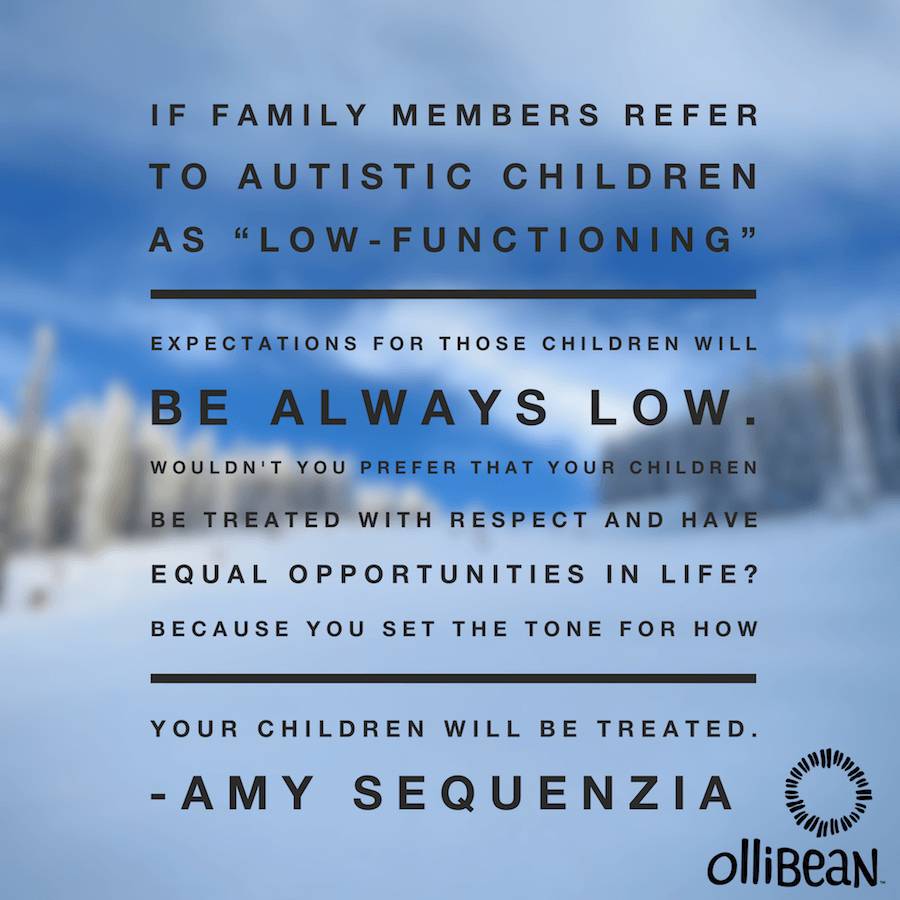
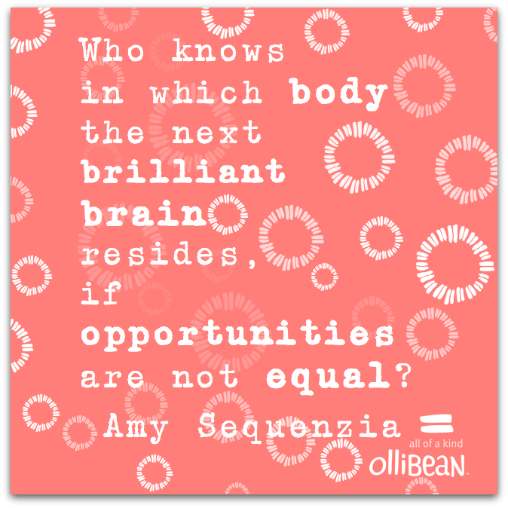
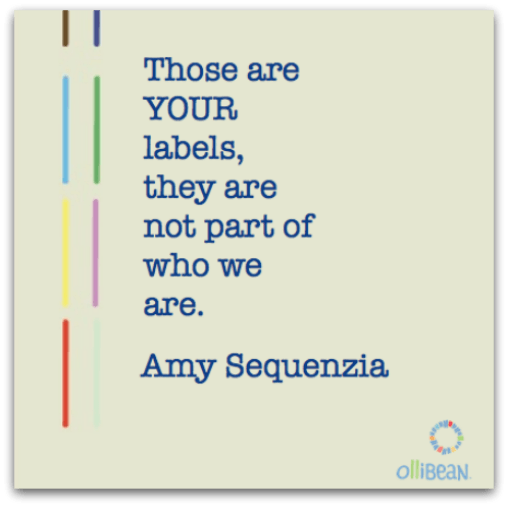
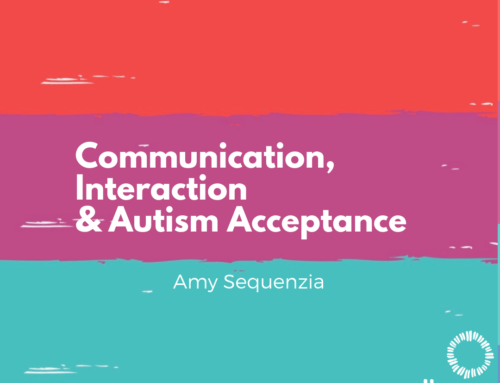
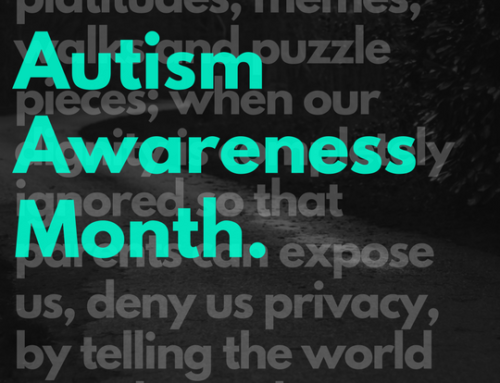
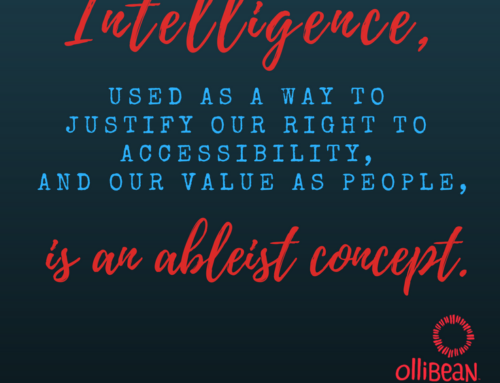
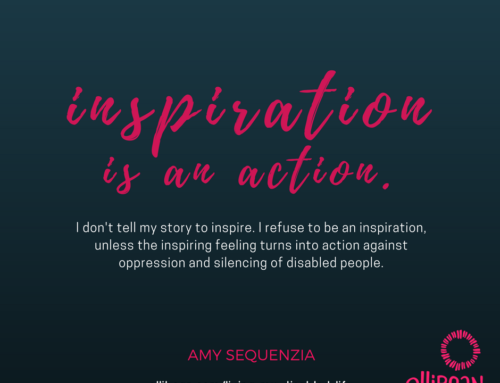
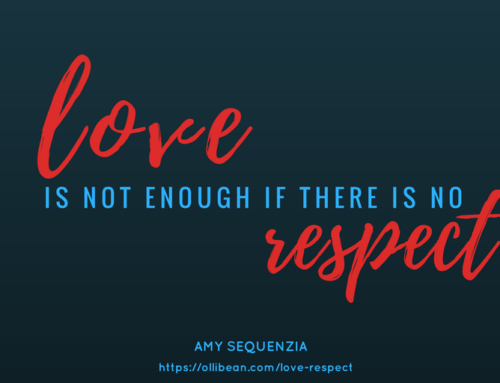
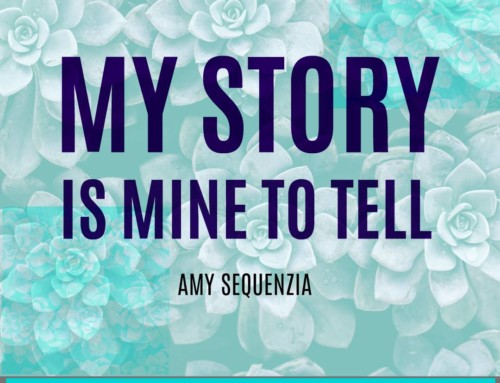
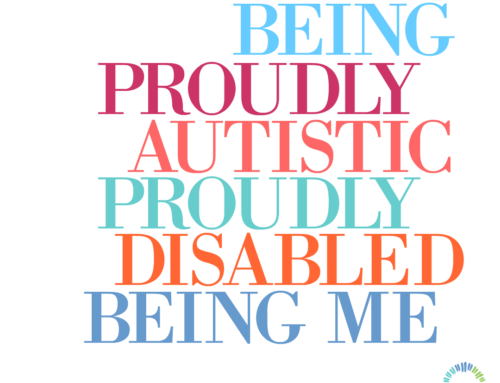
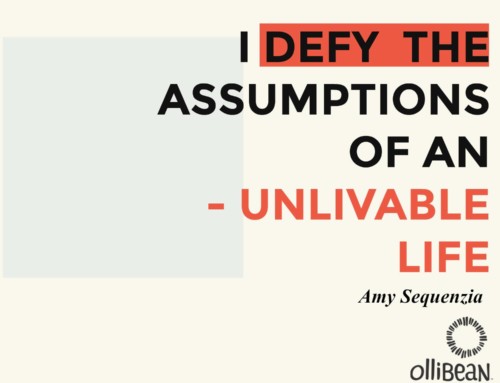
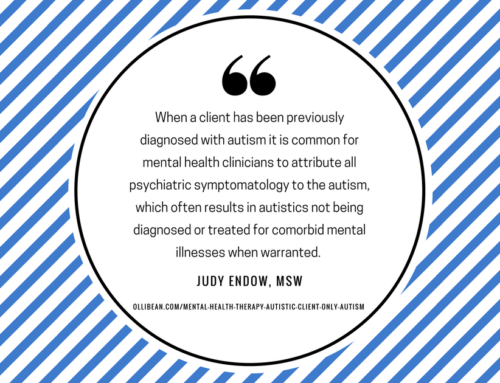
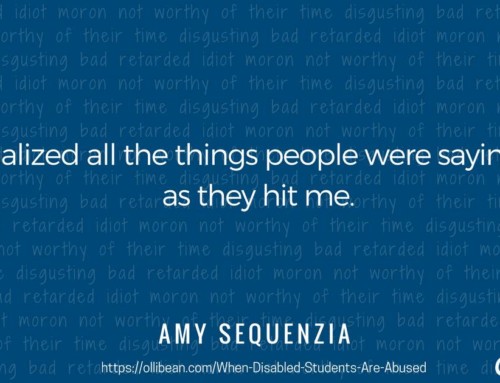

love this post…hate that it keeps on needing to be said, but until it doesn’t…thanks for saying it again and again, over and over and I join with you looking towards that day when it is no longer needed. <3
A friend on my FB Friends List has a picture in her album that has the words: “Disable The Label.” She told me that it means that sometimes the label that a person is given can be more disabling than the disability itself. Your blog post reminded me of that picture.
I have used the comparison to “those very low-functioning, pitiful ones” to convince my GP and parents that I realised I obviously wasn’t like that but the spectrum also included “high-functioning” people. I don’t think they would have listened otherwise, they all kept saying I’m so normal. I hated myself for doing it but I felt it was the only way to get heard, and it got me where I wanted to be (getting tested).
I’ve been fighting the system ever since to make sure nobody needs to make that comparison anymore.Because it’s odious and hateful and JUST NOT CORRECT. And I hate incorrect things.
I am still learning. I am doing this on my own. I want to be an advocate for my daughter – but in the right way… whatever that may be. This post opened my eyes. I understand the implications of labeling, but my question is this: How do I explain my daughter’s autism to people in a way that will make them understand? Do I just say that she is autistic and then if they ask, list the areas that are non-NT? I am struggling to do my best. My daughter is only 3.5 and I have many years of learning ahead of me… Anyway… your posts are very inspiring and help me, so thank you! ~C
Sorry, bad iPad
Like all autistics she is good at some things and needs help with other things. Sometimes she might need much more help because we, as a majority who defines what “normal” is, are not used to see beyond the usual. She will also grow and develop many skills, maybe later than some kids. But she will do this in a way that does not hurt who she is. She might also need some help with some things that we think she is too good at. But I want her to be able to be herself all the time, even when her difficulties do not show. All autistics deserve supports
If they insist on labels just tell them that labeling is a false description and that we all are complex.
I hope you stand firm on this because your daughter needs you on her side and she will grow more confident and with self esteem. We need to educate people. Thanks for reading!
Christina, my iPad does not let me reply this directly to you and I am far from my computer. I hope you can see this.
I think you could say something like this:
My child is autistic and like all autistics
I’m a parent … wait _ I am an Autistic parent of an Autistic child …
I hear what you say … and I agree to a point.
Labels are not helping – however – diagnosis – direct and specific can help very much. That sadly, at the moment use the negative labelling … so perhaps we should brainstorm and find new positive terms.
How do I see it can help:
It gives us a clear indication of where we are at (or our child) and what we need to work on and where to work towards….
My son Theo, is 4 and diagnosed severe to mild Autistic. I think it is okay … cause that is where he is at now. But that is not where he will remain … coz he is doing his best and his dad and I together with those around him, doing our best to help him be his best.
a label is just that …
a diagnosis is just that …
it can not make us more or less …
SURE, people can make us feel less or more …
we should however find the I in me and be content with self , knowing that self will do better as myself always gives my best …. so it matters not what others say or think …
I know where I was, where I am now and where I am going too …
today I am better than yesterday and tomorrow I will be even beter than today …. labelled or not!
Fantastic article :)
Great article
May I add this post to a website I’m building-it’s a “doorway” to connect parents/family, etc. quickly to autistic bloggers/resources, etc. Thank you.
Great read on Autism. Thanks for sharing Kath.
Thank you for your writings.
I agree. I hate the label of high functioning because it made it nearly impossible to get support when I need it. It makes me not accepted because even with being autistic people don’t expect me to need help with something’s when I do need that help.
As a child I was severe in how my Autism affected me…
Until the age of 7 years old I had no acknowledgement of other people, to me other people were not people like me but rather they were inanimate objects that occasionally tried to interact with me. I didn’t recognise my own name and had no real sense of self. I was non-verbal and squealed a lot. Clothing, touch, not being able to do what I wanted, bright lights, lots of noise, etc. all caused meltdowns – I had hourly meltdowns and was in constant pain from headaches, clenched jaws, sore throats from screaming, and pussy eyes from crying. I self-harmed a lot, my hands were constantly bloody and infected as a result. I was unable to eat solid foods, bathe, or use the toilet – I’ll leave out the details of that last point. Because of my behavior people thought I was mentally retarded.
As a child I was what some would call ‘low-functioning’.
As an adult in my twenties I could pass for neurotypical; I went from hourly meltdowns to going years without one, I went to college, I gave talks, I was a manager at my place of work, I had a lot of friends who I went clubbing with on a regular basis, I had a long-term [neurotypical] boyfriend, I lived independently and was even on top of my bills…frankly sometimes I seemed to function better than the neurotypical people in my life!
As an adult I was what some would call ‘high-functioning’.
Only things changed a little, I lost my job and unemployment impacted on my ability to function, a nasty incident caused me to regress considerably. Now I’m somewhere in the middle.
It drives me absolutely around the bend that neurotypical people – usually parents of Autistic children – will discount my opinion based on the idea that I’m ‘high-functioning’, it’s so dismissive and ignorant. It shouldn’t be that parents of Autistic children refuse to listen to Autistic people due to this myth of functioning, that if we can write on a forum or in a blog that we can’t possibly know what it’s like to be Autistic.
I know what its like to be labled. I was diagnosed in 2005 with both Autism Spectrum Disorder and Cerebral Palsy – I don’t need other’s pity.
Thank you I appreciate your perspective, however I diagree. It’s not meant to be dis respectful but rather a often necessary dialogue about two very different manifestations of the same disability. Especially when talking to schools, doctors, and service providers
I can’t stand functioning labels. I too think they are BS. Not too long ago, I noticed a missing person report for an adult autistic woman whom I know well. The report said she “functions at the level of a 13-14 year old”. Knowing her, I don’t think this describes her very well. While the police perhaps thought this would get the woman found faster, I personally think this was both ableist and redundant. (BTW, she was found alive and well only 8 hours later). After all, who functions well when lost? I later heard this woman is now trying to get the embarrassing report removed from news sites and social media; a very daunting task. (She has had some success, but the effort reiterates the trauma). I think everyone should remember that every person’s “functioning level” varies from day to day, due to health (both physical and mental). As one autistic advocate says, always presume intellect!
Fantastic Article! My 2.5yo son is nonverbal, likely on the spectrum and is awaiting diagnosis. He has an integration aid an can OT helping him at preschool learn to use toys and interact more with other kids. He’s always seemed curious of others but unsure and sometimes overwhelmed. I have to say that I can’t help but be curious what level of “functioning” he would be assessed at-although it is a huge relief to know that it can vary back and forth throughout life. I don’t ever need him to “pass for normal” or be mistaken for NT. He’s a quirky kid I can’t ever see that changing but as a parent it’s scary and hard to think that your child may not be able to have an independent life-you just have such high hopes for them. It’s good to remember that even if they don’t it doesn’t mean they won’t feel fulfilled in their life. Even if my son was diagnosed as severe I will still do my best to set elevated but realistic goals for his education and give him every opportunity to learn and grow at his pace. I have to admit though, while there’s no guarantees or divination with any child it’s so hard the not knowing-not knowing if he’ll ever talk or communicate, etc etc.
In what way do you recommend explaining what extra help a person with autism will need to achieve their goals? do you think it’s ethical to tell others that someone is autistic at all?
Fascinating article!! My son was diagnosed at the age of 6.5 yrs old because of such labeling. I also would like to add that what I’ve found especially in schooling is that when a child is labeled as “high-functioning” autistic people tend to lack in the sorts of forgetting the child is even autistic! They tend to believe it looks like the child is “getting better” so they change a lot of things such as different Paras and different routines only to find out they were wrong! I have recently gone through this with my child. I will continue to share this article as it sheds a new light to some that don’t completely understand!! Thank you!!!